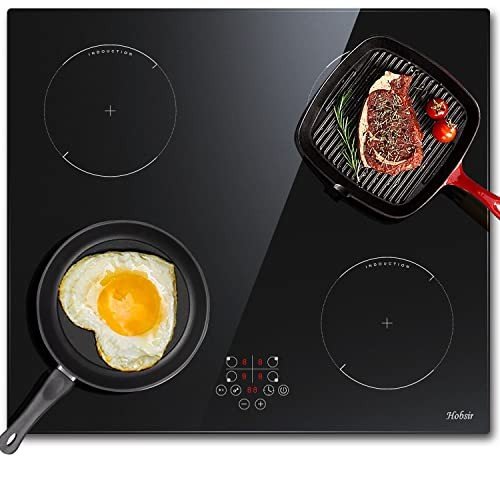The Comprehensive Guide to Sales Ovens: Understanding Their Importance, Types, and Best Practices
Sales ovens, a category of industrial cooking devices, are key gamers in the cooking and foodservice industry. These devices, created to prepare food in large quantities efficiently, are vital in restaurants, catering services, and other food establishments. This post looks into the significance of sales ovens, their types, and best practices for choosing and using them successfully.
What Are Sales Ovens?
Sales ovens, broadly specified, are cooking devices used primarily in commercial cooking areas to cook, bake, or heat various food products at scale. Their design permits them to handle greater volume cooking compared to basic property ovens. Provided the nature of food service, sales ovens often incorporate advanced innovations that promote speed, effectiveness, and even cooking.
Significance of Sales Ovens in the Food Industry
Sales ovens play an essential function in food production for many factors:
- Efficiency: Sales ovens can cook food more quickly and equally than traditional ovens, permitting chefs to prepare meals in less time.
- Consistency: With exact temperature level controls, sales ovens guarantee that the food is prepared uniformly whenever, maintaining quality across thousands of portions.
- Versatility: Many sales ovens can handle numerous cooking methods including baking, roasting, broiling, and even steaming, making them ideal for varied menus.
- Energy Savings: Modern sales ovens are frequently created to be energy-efficient, lowering functional costs for companies.
Types of Sales Ovens
The marketplace uses a range of sales ovens, each suited for particular cooking needs and types of food. Here are the most typical types:
| Type of Oven | Description | Best For |
|---|---|---|
| Convection Ovens | Utilize a fan to circulate hot air, making sure even cooking. | Baking and roasting products. |
| Combi-Ovens | A combination of convection and steam cooking, supplying versatility in cooking methods. | Varied menus needing steaming and baking. |
| Conveyor Ovens | Utilize a moving belt to continually cook food, suitable for high-volume operations. | Quick food and pizza. |
| Deck Ovens | Function separate compartments (decks) that can be individually controlled, providing high efficiency. | Artisan bread and pastries. |
| Rotisserie Ovens | Developed to slowly roast meat on a spit, supplying tender and juicy outcomes. | Roasted meats. |
Selecting the Right Sales Oven
Picking the suitable sales oven for a specific organization requires factor to consider of numerous elements:
- Volume Needs: Assess the volume of food that requires to be prepared. Greater volume suggests choosing conveyor or combi-ovens.
- Menu Diversity: Understanding what type of dishes will be cooked can guide the selection process. For example, a bakery may need a deck oven, while a diner may take advantage of a stove.
- Space Availability: Measure kitchen space to make sure the ovens fit effectively and have required ventilation.
- Budget plan: Commercial ovens can vary significantly in cost, so develop a budget plan that considers long-term functional savings.
- Energy Efficiency: Opt for ovens that have energy scores to keep energy expenses manageable.
Best Practices for Using Sales Ovens
Successfully operating a sales oven involves more than basic usage. Here are some best practices to keep in mind:
- Regular Maintenance: Schedule regular maintenance to tidy and inspect the functionality of the oven. This guarantees longevity and effectiveness.
- Preheating: Always preheat the oven to the desired temperature level before putting food inside for constant cooking outcomes.
- Utilize Thermometers: For accuracy, utilize an oven thermometer to make sure that temperature levels remain consistent, specifically for baking.
- Follow Cooking Times: Adhere to suggested cooking times based upon the type of food being prepared. Modifications might be needed for different ovens.
- Avoid Overcrowding: Ensure sufficient area around food products in the oven to permit appropriate air flow.
The Future of Sales Ovens
As innovation advances, so do the capabilities of sales ovens. Developments such as wise technology, energy-efficient styles, and enhanced security features are ending up being more popular. These improvements promise to boost cooking efficiency while likewise meeting sustainability objectives.
FAQs about Sales Ovens
Q1: How do I clean my sales oven?
A: Regular cleansing includes getting rid of any food debris, wiping down surface areas with non-corrosive cleaners, and following specific cleansing suggestions from the producer.
Q2: What's the life-span of a business oven?
A: Typically, a well-maintained commercial oven can last anywhere from 10 to 20 years, depending upon usage and maintenance.
Q3: Can sales ovens be used for baking?
A: Yes, numerous kinds of sales ovens, particularly convection and deck ovens, are specifically developed for baking a series of items.
Q4: Are there energy-efficient choices for sales ovens?
A: Yes, several producers provide energy-efficient models that decrease energy usage without compromising efficiency.
Q5: How frequently should I conduct upkeep on my sales oven?
A: It's suggested to conduct regular upkeep checks each month or quarter, depending upon use levels. Furthermore, Hobs Sale should occur a minimum of every year.
Sales ovens are essential in the contemporary culinary landscape. Their capability to cook large amounts of food effectively makes them important for restaurants, catering services, and other food facilities. By understanding the numerous types, picking the best oven, and sticking to best practices, food service businesses can enhance their cooking procedures, boost their offerings, and eventually thrill their consumers with impressive culinary productions.

